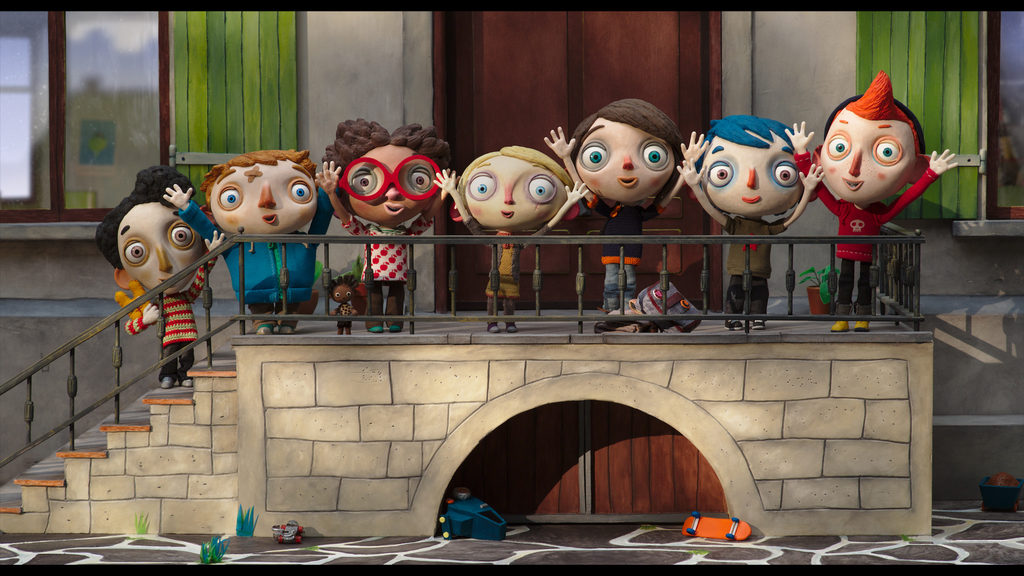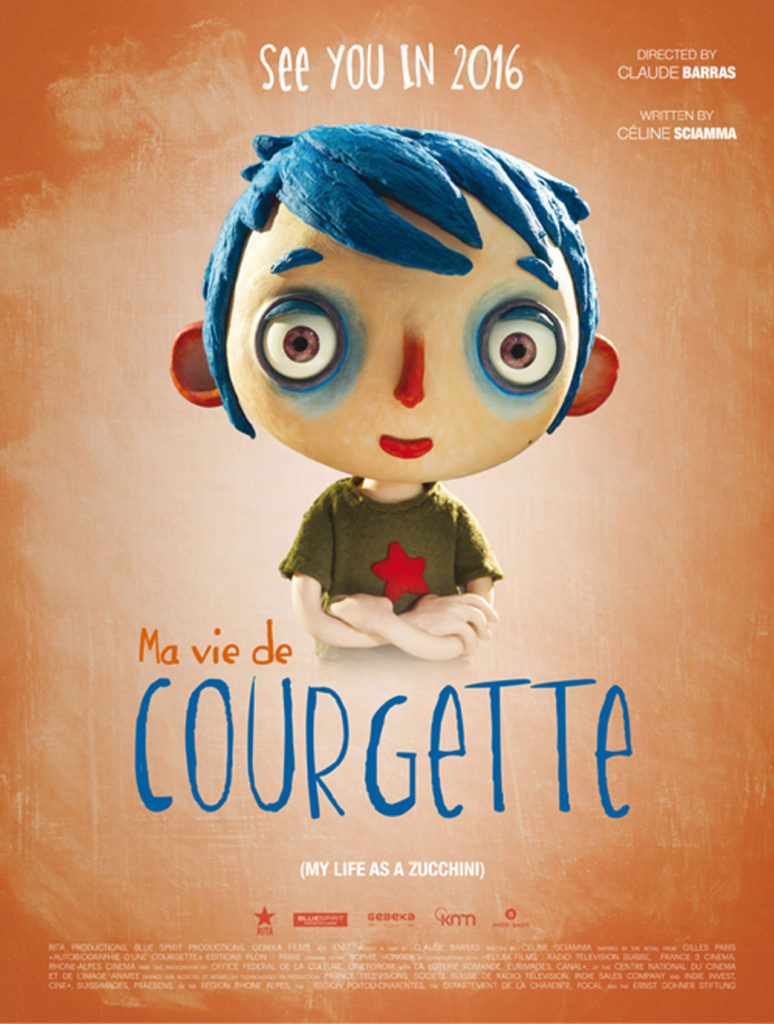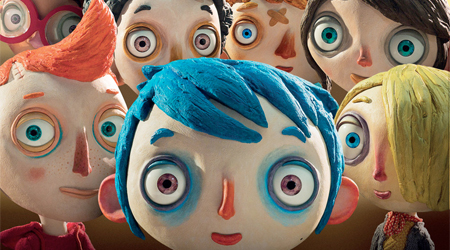For our first foreign film of festival coverage, we’ll be talking about the “Crystal” or “Best Feature Film Recipient,” My Life as a Zucchini, or Courgette, as it’s referred to in Europe. As The Little Prince has reinvigorated the trends for stop-motion films and children’s book adaptations, we’ll find out if this bizarrely-named tale is worth the same level of praise.
Don’t be fooled by these clay-faced orphans, this upcoming feature looks to be an award-contender in our current sea of talent.

My Life as a Zucchini (Ma Vie de Courgette)
This French-Swedish stop motion movie was awarded the “Audience Prize” and “Crystal Award for Best Animation,” and deservedly so. ‘My Life as a Courgette’ opens with a little boy named Icar, nicknamed “Courgette” (which he prefers over his actual name), living with an abusive, alcoholic mother. He spends his days drawing the father he never knew as a superhero, and flying a kite from the attic of his home. After his mother passes away, a friendly police officer takes him to the local orphanage. At first, Courgette doesn’t have an easy time adjusting to his new home, as one of the kids makes it his priority to torment Courgette. However, the bully’s own tragic backstory is quickly revealed, and the two form friendship all the while bonding with the rest of the children at the orphanage.
‘My Life as a Courgette’ also takes on very difficult societal issues, which may be out of the comfort zones for some. All the children in the film have endured various psychological and physical traumas, though most of these traumatic experiences are told from the “innocent” perspectives of the kids with try to interpret and comprehend them. It’s a tale about childhood trauma, and the slow, steady pace one must take to help those affected by it.
In terms of the aesthetic, what I really appreciated about the film was that the orphanage in which Courgette lives isn’t a cold, scary place with uncaring administrators, but a welcoming home with teachers and social workers who are doing their best to create a safe and nice environment for children. Even the policeman, who Courgette befriends, is completely understanding of the children and their general lack of respect and trust in the police, as it was the lawmen who took them away from their homed in the first place. The orphans themselves also aren’t constantly gloomy and traumatized, but normal kids, who like to have fun and ask a never ending series of questions.
In fact, as odd it might sound, the film is at times also very funny. It’s one of the great strengths of the animation medium, as the stop-motion dolls add an extra layer of innocence and whimsicalness to the story. Had the filmmakers not chosen to go down this route, the film might have been too dark and off-putting for most to enjoy. Everything, even a sub-plot that involves a scheming aunt who tries to use her niece as a possible source of income for herself, manages to be presented in such a way that is both heartbreaking and sweet, due in turn to the cleverness of the writing and charm of the animation.
In the end, ‘Courgette’ is a very touching and charming slice of life picture that mixes all different kinds of emotions, and serves as a thought provoking look at unpleasant social issues that are so often never discussed openly. Oh, and it also made me cry.
Something I really dig about this premise is the fact that it actually shows cops and foster homes in a positive manner. Story-wise, it’s incredibly easy to make these authoritarian figures into Dickensian villains. Most people are familiar with the horror stories that happen far too often under the eyes of social work. But there are cases where being protected by the law is much better than the child’s current situation. The turn-around is rarely Disney-esque clean.
That theme of trust in authority works as a great contrast to the style, as the Tim Burton look would make you think it was another wacky outcast story. Going by the mood of the trailer, My Life as a Zucchini wants to remain strictly slice-of-life, but super contemporary and nuanced. The quiet atmosphere is one of the pleasurable attributes of foreign cinema, because they aren’t afraid to be honest about the harsh reality or comedy in the banal. When you just follow animated films stateside, it’s easy to get fatigue from all the noise.

There’s nothing really I can find about director, Claude Barras, other than the fact that this is his first feature film. According to IMDB, he’s done a few shorts called “Land of the Heads” and “Chambre 69.” The screenwriter of the novel adaptation, Céline Sciamma, is a director/writer for several coming-of-age female films: Tomboy, Water Lillies, and Girlhood. I’m not really familiar with any of this material from the people involved, but the combination of the two sounds particularly effective, especially with Maciek’s comments of the real emotion you feel from the characters.
This is probably the most anticipated movie I’ll have from the festival. But what other surprises are in store? Check out the next AAA: Animated Anarchy & Annecy to find out!







